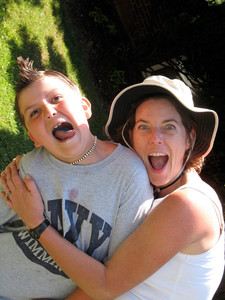I Never Wanted to be a Grief Support Leader, but I am Glad I am
- Kristin Seeberger
- Oct 25, 2022
- 3 min read
Grief rearranges your address book; Megan Devine says in her book It’s OK That You’re not OK. People I thought would be by my side aren’t there; either they disappeared, they behaved badly, or perhaps I cut them out. Even those who loved me could not stay by my side. They could not be my grief people. Grief is scary to confront for those of us who have lost a child, sibling, or friend to an overdose, but we have no choice but to face it. But we do have the choice with whom to face grief with.
There is a paradox in grief: no one can grieve for you even when you do not want to be alone. No one knows the depths of your loss, how the major and minor keys in your life have been completely rearranged, so there is no longer a melody you can follow. Grief becomes a collection of discordant notes you can no longer make sense of.
I learned that grief is both about being alone and listening to new sounds in my life, those of sorrow, pain, regret, longing, and missing. I learned that my life was forever changed. I knew that grief was a new companion that was first unwanted and scary and is now accepted.
I also learned that I needed others to grieve.
I joined a LITT grief group five weeks after James, my 20-year-old son, died of fentanyl poisoning. In one of my early zoom meetings, one of the parents said she didn’t know if she ever thought she’d be happy again. Her son had died a year before James. “I don’t know if I will feel joy again,” she told the group. That night, I sat in the darkness of my living room and cried very deeply, afraid that I, too, would never feel joy and happiness again. I wanted James back. I wanted my old self back, the self that laughed, loved to dance, and ride her bike.
If I could change time and reverse life’s course, I would have James alive, sober, and giving me one of his bear hugs. But I don’t have that superpower, nor do any of us, so I am left to move onward with James as a different type of companion. His life force guides me in new and unpredictable ways, one of which was to say “yes” when asked to lead a LITT group.
I never thought I could lead a grief support group, but here I am two years after James’s death leading one. Being part of a LITT grief support group helped me realize that I could talk openly about my feelings of regret and deep love simultaneously. I could no longer feel alone. I had a community of parents that lifted my grief. By not focusing on myself and my sadness and taking in the stories of others, my grief became lighter. My shoulders broadened. I learned I could carry the suffering of others.
Bearing witness to each other, listening to the stories of lives, the sad parts, the funny parts, and everything in between, keeps our children close to our hearts.
Sometimes we will talk about the silver linings in our group: it was hard for me to see and feel it early on. But it started to shimmer when I turned my attention to it, and I soon realized that there was a light, and it was becoming brighter, illuminating the faces in my life that showed up in my grief—my LITT community. I was no longer alone.

Being a group member and now a group leader has been an unexpected silver lining in my life.
The antonym of grief is joy, and while grief robs it from us, my experience has been that in life’s greatest losses, there can be moments of joy, albeit different than before our loss, but if we turn our attention to it, even slightly, there can be a shimmer.

Kristin Seeberger is pursuing her MFA in writing at Bennington College after a 25-year career in design leadership and brand management. She has an MFA from Virginia Commonwealth University, Master of Design from the University of Cincinnati, and was a Fulbright Scholar at the Aalto University School of Arts, Design and Architecture in Helsinki, Finland. She is a trustee of Baltimore’s Creative Alliance and is a group leader with LITT (Love in the Trenches).
.png)



